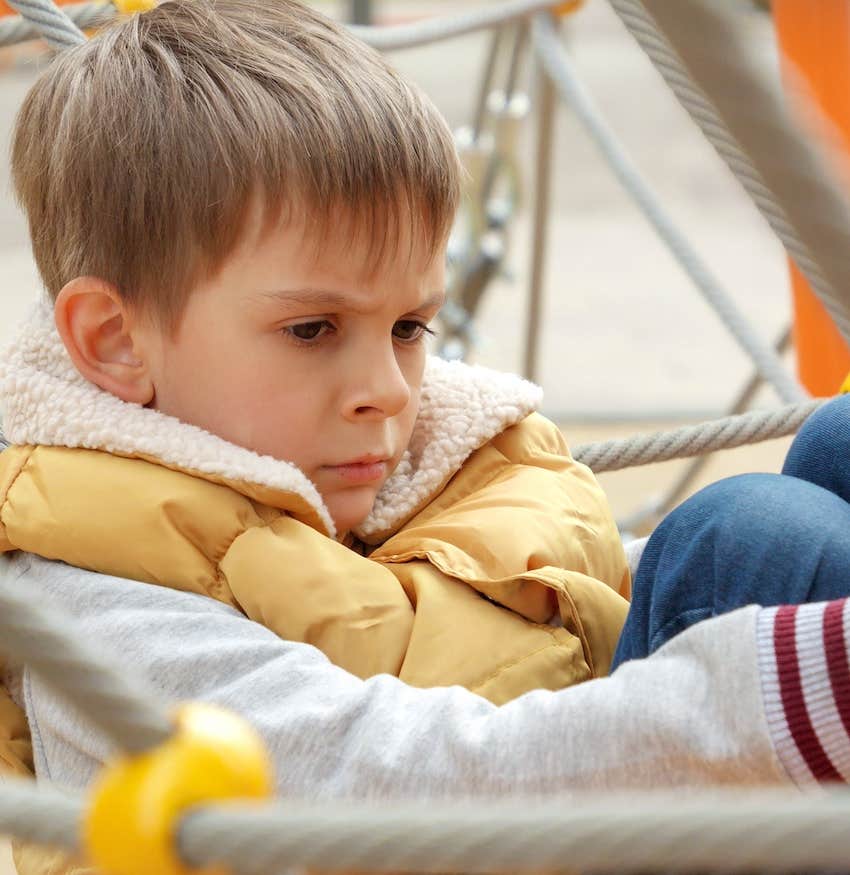If You Want To Raise Empathetic Kids, Start With These 4 Old-Fashioned Lessons
Kids need obstacles to overcome.
 Fernando Arias | Canva
Fernando Arias | Canva Tiger moms, free-range dads, and helicopter parents all have varying degrees of authority over their children. While working with parents and children at The Little Gym for decades, I've seen different parenting styles first-hand, and noticed the reemergence. Parents who nurture empathetic kids treat their children like a child and not like little adults who the parent has control and authority over completely.
Like with customer service, you have to know who your customers are, what they want or need, and how to provide it effectively with the best possible quality, the same is true with using these old-fashioned lessons to raise an empathetic child.
If you want to raise empathetic kids, start with these old-fashioned lessons:
1. Help kids label their emotions
When your child experiences feelings of failure, help them process those emotions by labeling their feelings and letting them know it's normal to feel that way.
Ask your child, "You didn't get chosen for that activity at school. I understand how that could hurt your feelings and make you feel sad. It's OK to feel that way. Would you like to talk about it?"
Parenting coach Susie Petit explained, "I can not teach my kids how to regulate their emotions if I don’t know how to regulate my own. The better I care for myself and my mental, emotional, and physical health, the better my kids will be able to care for theirs. For your kids to be emotionally intelligent, you need to be emotionally intelligent, yourself."
2. Be a good role model
 Kyrylo Ryzhov via Shutterstock
Kyrylo Ryzhov via Shutterstock
An article in Anxiety, Stress, and Coping Journal helped show how parents can model coping skills for their children. Share your own experiences of failure with your child and how you dealt with them.
Let your child know how you felt and what you did to overcome, as well as what you learned from it.
3. Learn to let things go
One of the most difficult concepts for parents to come to grips with is how and when to let it go. Just like Elsa in Frozen, let it go! Both you and your child might learn something.
Ask yourself, "Am I choosing my actions based on what's best for my child, or what's best for me?" OR "Am I doing my child a favor by sheltering them from failure, or am I preventing my child from a meaningful learning opportunity?"
Parenting coach Mia Von Scha advised, "I see too many young adults in my practice who are ill-equipped to cope in the world. They have loving mothers and fathers who did everything for them, protected them, worried and fussed over them, and made them into ineffective adults. The questions we are asking tend to be around micro-managing their lives. Our job as parents is not to be so involved in our children’s lives that they cannot live without us. Our job is to provide the basic structure for them to learn about the world and to find their way in it."
4. Prepare kids for disappointment
When your child chooses to try an activity or an endeavor that could end in disappointment (i.e. trying out for the dance team), discuss with him or her all of the outcomes, both negative and positive, and ask if they're willing to accept them all. Give them your full support.
To a certain degree, going to the principal's office and asking why your child isn't making all As is totally fine. However, when you accept nothing less than perfect and place all the blame for your child failing on the school, then there's a problem.
How? Because you're teaching your kids that failure isn't an option, robbing them of the ability to cope and preventing your child from developing an appropriate level of independence, self-esteem, and confidence that will help them get through the ups and downs of everyday life.
I get it. No one wants to see their child fail, especially when they come home crying because they made a bad grade or lost their soccer match. It's heartbreaking, but as parents, we need to teach our kids that failure is a part of life and that not everyone can be perfect.
"Overcoming failure helps our children increase their self-esteem, risk-taking, self-confidence, and optimism, which fortifies them to better face life's inevitable challenges," advised family coach Kathryn Brown Ramsperger, "Their stress and anxiety decrease as they learn to stop fearing failure and, instead, learn from it and try harder (and smarter) the next time."
So when you're struggling with teaching your kids that failure is normal and feel yourself going back to your snowplow parenting ways, heed the warning and remember these helpful tips.
Randy McCoy is the Director of Curriculum at The Little Gym International.

